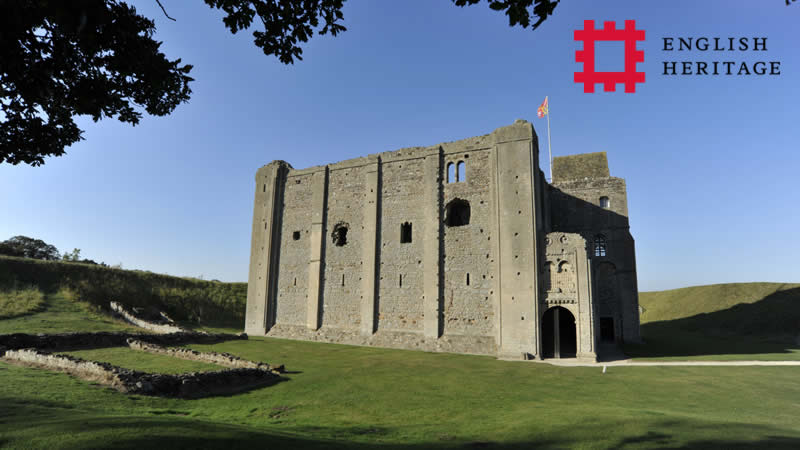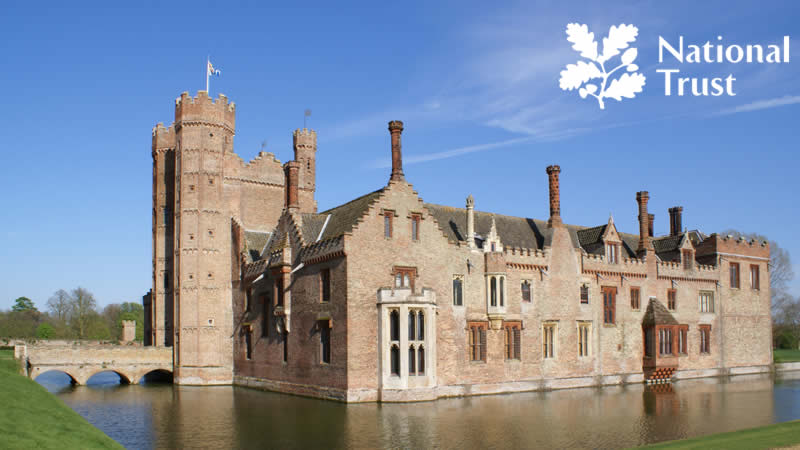The Norfolk Wildlife Trust - Wildlife Conservation in Norfolk
Published date: January 2019

The Norfolk Wildlife Trust is the oldest Wildlife Trust in the country and aims to provide hands-on, learning experiences to develop knowledge, understanding and enjoyment of the natural world. 400 acres of marshland at Cley, on the north Norfolk coast, was purchased in 1926 to be held ‘in perpetuity as a bird breeding sanctuary’. This has provided a blueprint for nature conservation which has since been replicated the length and breadth of the UK.
In the last 90+ years, the Norfolk Wildlife Trust has come a long way and now has over 35,500 members, in excess of 100 corporate members, plus eight local members groups and provides conservation advice to a wide variety of individuals and organisations. The Norfolk Wildlife Trust offers education services for over 5,000 young people on school and university field trips each year and runs hundreds of fun and informative events at their Norfolk reserves.
There are over 50 nature reserves and other protected sites that the Norfolk Wildlife Trust provides care for, with a mixture of heathland, broads, coastal habitats, marshes and woodland. These reserves are home to some flagship species such as water vole, otter, natterjack toad, swallowtail butterfly, bittern, common crane, bearded tit, marsh harrier and Norfolk hawker dragonfly.
Discover and learn about Norfolk’s amazing wildlife at one of Norfolk Wildlife Trust’s reserves. They hold events at various locations around Norfolk - in the broads, brecks, coast, woods and heathlands for both children and adults. Enjoy dyke dipping sessions, boat trips or guided walks and learn about the local wildlife and the trust’s pioneering conservation work.
The following Norfolk Wildlife Trust reserves have a visitor centre and other facilities including toilets, café, gift shop and knowledgeable members of staff/volunteers on hand to answer any questions.
Cley Marshes
Post code: NR25 7SA
Cley Marshes is Norfolk Wildlife Trust’s oldest and best-known nature reserve. Its shingle beach and saline lagoons, along with the grazing marsh and reedbed support a large number of wintering and migrating wildfowl and waders, as well as the elusive bittern, marsh harrier and bearded tit.
The eco-friendly visitor centre at Cley Marshes opened in 2007 and contains a café, shop, viewing areas, education centre and courtyard. The reserve is open dawn till dusk, with the visitor centre open daily from 10am. The café closes half an hour before the centre. The centre is closed on Christmas Eve and Christmas Day.
Unfortunately, no dogs are allowed on the reserve. Visitors with dogs can however walk Beach Road, along shingle bank (Northern reserve boundary) and East bank. From here you can see some areas of the reserve.
Admission is free to Norfolk Wildlife Trust members and children, £4.50 for non-members.
Hickling Broad
Post code: NR12 0BW
Hickling Broad is the largest of the Broads and is a year-round haven for wildlife. With a vast number of walking trails, it’s easy to spend a day here, especially if you include a boat trip to see the magnificent Broads from a very different perspective. Wildlife highlights at Hickling Broad include marsh harrier, swallowtail butterfly, common crane and the bittern. Hickling Broad is considered one of the best places in Norfolk to hear and spot the bittern. Listen out for its booming calls from early March until June, with dawn and dusk being the best times to listen. They can be seen in flight at any time of day or year (although patience is needed!) or on the rare occasion, they can be observed standing at the edge of the reeds.
The reserve is open dawn till dusk, every day, all year round. Visitor centre is open 29 March to 28 October: 10am – 5pm. Over winter it is open at weekends, 11am – 4pm.
No dogs are allowed on the reserve at Hickling. Visitors with dogs can walk Weavers Way public footpath along the South edge of the Broad. There is also a public footpath from Hickling village North of the reserve – from here you can see some areas of the reserve. Dogs may be taken to the raptor roost from Hickling car park.
Free admission to Norfolk Wildlife Trust members and children, £4.00 non-members.
Holme Dunes
Post code: PE36 6LQ
Located at Norfolk’s northwest corner, Holmes Dunes is where The Wash meets the North Sea. Attracting many migrating birds, Holmes Dunes holds a variety of important habitats that support other wildlife species that include the natterjack toad, many butterflies and dragonflies. Sea buckthorn is plentiful here, probably planted to help stabilise the dunes. This spiky silvery shrub has bright orange berries in autumn and is enjoyed by the thousands of migrating birds, such as wintering thrushes, that stop off at Holme Dunes. Barn owls are common here and can be seen hunting silently over the grazing marshes in the late afternoon; calm days being the best time to spot them. The avocet is the unmistakeable black-and-white wader, with an upturned bill that breeds in small numbers on the reserve. These can often be seen feeding in front of the hides at Holme Dunes during the summer months.
There is a small shop at Holme Dunes that sells gifts and a cafe in the visitor centre. The reserve is open daily throughout the year between 10am-5pm, or dusk, if earlier during winter months. The visitor centre and café are open 29 March to 28 October: 10am – 5pm. November to new season: weekends only (plus 26 December/1 January) 10am – 4pm. Cafe closes 30 minutes before the centre closes.
Some areas of the reserve are dog friendly at certain times of the year. Please observe signage at the reserve and keep dogs under control or on a short lead to avoid disturbance to livestock and wildlife.
Norfolk Wildlife Trust members and children are free, non-members are £3.75. Beach car park: day ticket £5.
Ranworth Broad
Post code: NR13 6HY
The floating Broads Wildlife Centre at Ranworth Broad is reached by a boardwalk and has a panoramic vista across the water. Spot good numbers of wildfowl including wigeon, gadwall, teal, shoveler and pochard. There are great crested grebes all year round and kingfishers can occasionally be seen. Vast numbers of cormorants roost in dead trees, marsh harrier pass elegantly overhead and common terns nest in front of the visitor centre.
Navigate the boardwalks that pass through woodland and reedbed habitats, listen out for the song of the Cetti’s warbler, spot the swallowtail butterfly during the season they are present and watch out for Norfolk hawkers and other dragonflies that make Ranworth Broad their home.
The reserve is open dawn till dusk, every day, all year round. The visitor centre is open 29 March to 28 October: 10am – 5pm. October weekends and half-term only. There is a gift shop and light refreshments. Car Park: 1 April - 29 October: 10am - 5pm, October: weekends and half-term only. The car park is only opened intermittently between November and April. If you are organising a group visit to the site and wish to use the car park during the winter, please contact the reserve on 01603 625540.
Boat trips from Ranworth Broad can be booked – further details can be found on the Norfolk Wildlife Trust website:
www.norfolkwildlifetrust.org.uk
No dogs are allowed on Ranworth Broad nature trail. Entry is free, but donations welcome.
Weeting Heath
Post Code: IP26 4NQ
If you want to see the rare and unusual stone curlew, NWT Weeting Heath is the place to visit and is considered the best site in the country to observe this species. The heath is also a common place to spot woodlark, lapwing, green woodpecker and mistle thrush. Occasionally it is possible to catch sight of kestrel, little owl, sparrow hawk, common buzzard, marsh harrier and, in summer, hobby, from the reserve’s hides.
Weeting Heath reserve is open 24 March to 31 July: 9.30am – 4.30pm. The visitor centre is open 24 March to 31 July: 9.30am – 4.30pm. August weekends and weekday openings on demand for nesting season. Refreshments are available.
Dogs are allowed in parts of the reserve, but only at certain times of the year. Please check signage on site for full details.
Norfolk Wildlife Trust members and children are free to enter, non-members £3.75.
Other Norfolk Wildlife Trust reserves are: Alderfen Broad, Barton Broad, Booton Common, Cockshoot Broad, East Winch Common, East Wretham Heath, Foxley Wood, Hethel Old Thorn, Hoe Rough, Honeypot Wood, Lolly Moor, Lower Wood in Ashwellthorpe, Martham Broad, Narborough Railway Line, New Buckenham Common, Pigneys Wood, Ringstead Downs, Roydon Common and Grimston Warren, Salthouse Marshes, Scarning Fen, Sparham Pools, Syderstone Common, Thompson Common, Thorpe Marshes, Thursford Wood, Trinity Broads, Upton Broad and Marshes and Wayland Wood.
To find out more about the Norfolk Wildlife Trust, its reserves, how to become a member or a sponsor, to find out about Norfolk Wildlife Trust events, talks, workshops or exhibitions or how to become a Norfolk Wildlife Trust volunteer, visit their website:

A Guide to Understanding Broad Norfolk
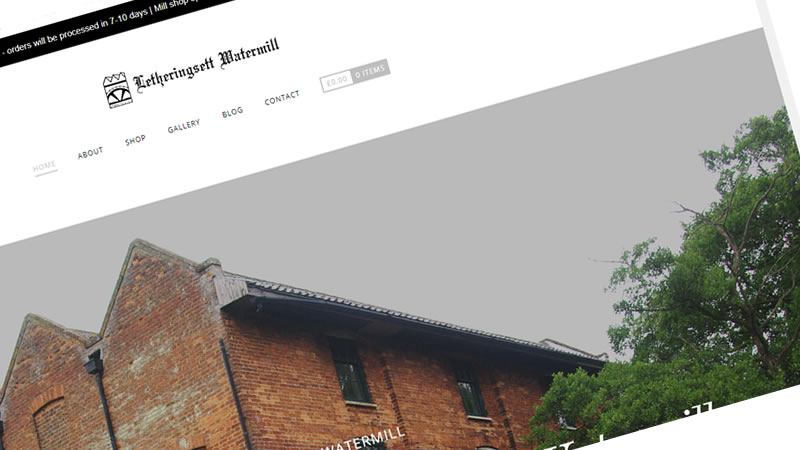
Letheringsett Watermill

An abundance of Theatres in Norfolk

Hippodrome Circus

Time and Tide Museum of Great Yarmouth Life

North Norfolk Railway
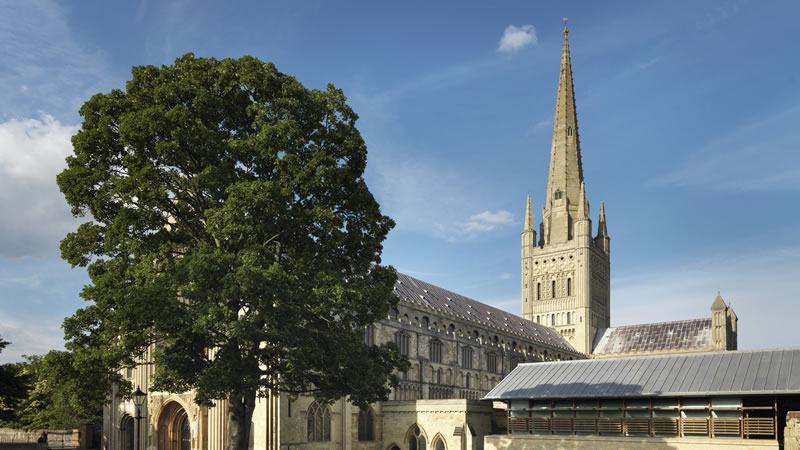
Places to Visit in Norfolk

Norfolk Treacle Tart Recipe

Priory Maze and Gardens
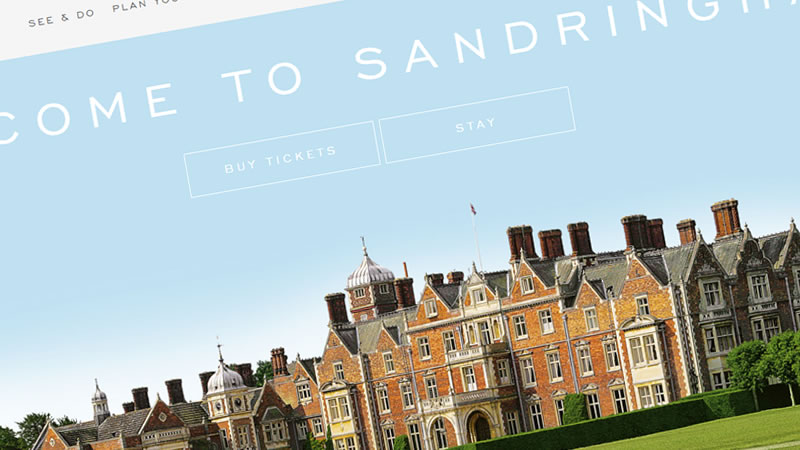
Sandringham Estate

Hoveton Hall Estate

Some of the most popular Parkruns in Norfolk

Princess Theatre Hunstanton

How to make Norfolk Rusks


